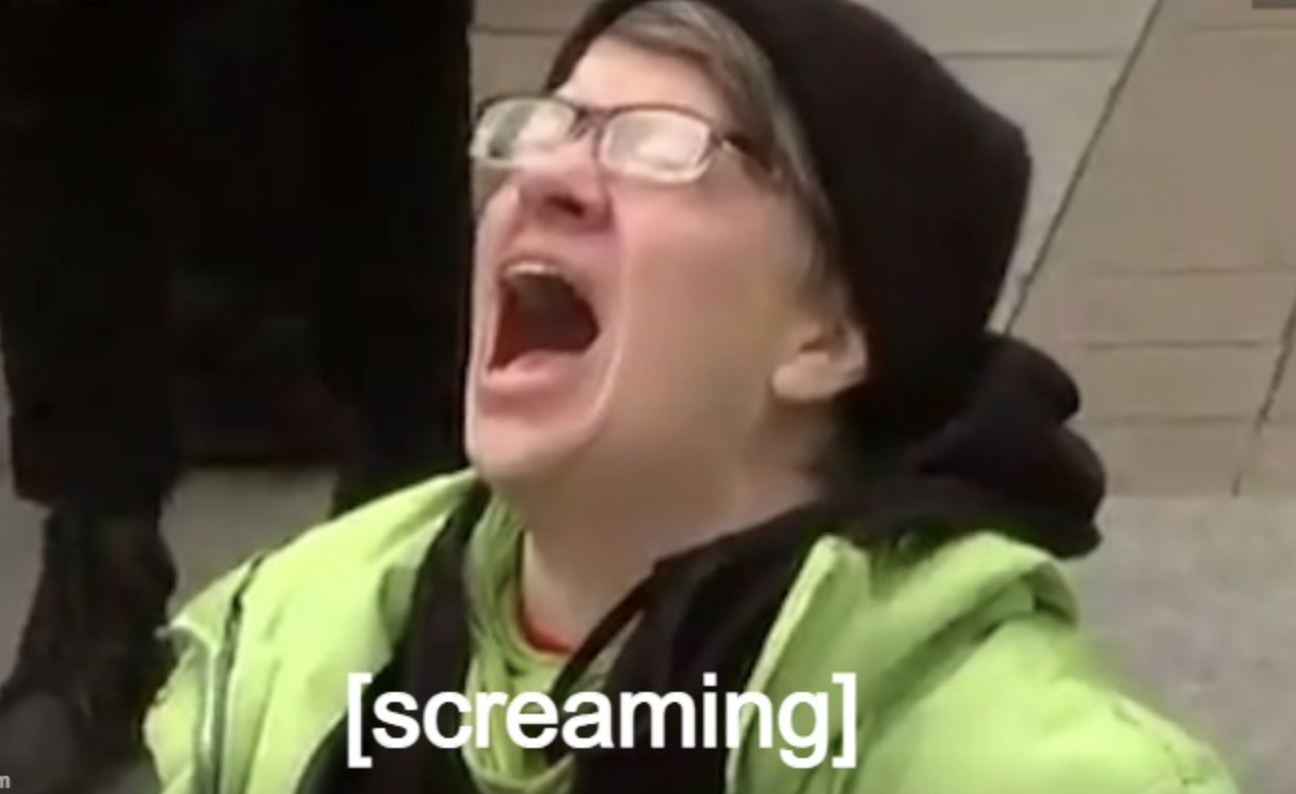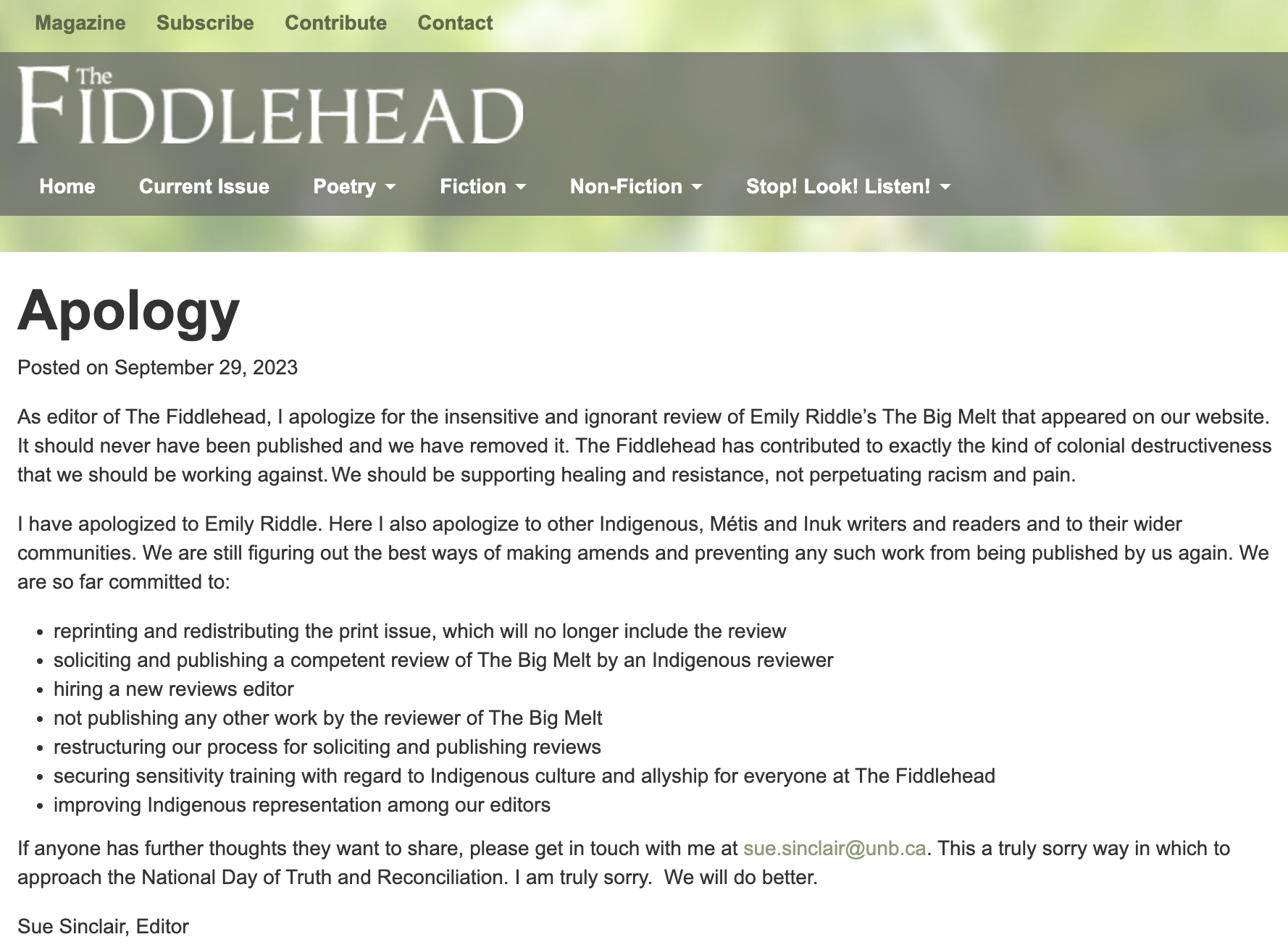Bio: I was born and raised in Ontario, then spent most of my twenties roofing, landscaping, and manual labouring in Nova Scotia and British Columbia. In 2015, I received an MFA in Creative Writing from the University of New Brunswick, where one of my stories won The David H. Walker Prize. My work has appeared (or is forthcoming) in The Antigonish Review, Canadian Literature, CV2, The Fiddlehead, The Malahat Review, PRISM international, Queen’s Quarterly, The Journey Prize Stories 29, and others. I currently live in Rhode Island, writing in small, regular doses and taking care of my nine-month-old daughter.
I had a tough time finding you. The first page of Google results did a poor job of separating you from the other Michael Meaghers. I couldn’t find you on Facebook. You don’t seem to have a writer website, and michaelmeagher.com is still available for the low, low price of $19,395 (or 12 payments of $1617). I had to ask the editor of The Fiddlehead to pass along a message. Are you hesitant to promote your writing online and through social networks? Do you hate social media, or is an expanded online presence a chore that you simply haven’t completed?
Seems like a steal, though, doesn’t it? $1617 a month. That’s more or less the monthly net salary of a below-average roofer or landscaper or mat cleaner. I know. I’m invisible on the internet. I’ve been told by friends that they’ve found my poetry online: if you dig, you can find some very very shitty poems that I wrote ten or fifteen years ago. For everyone’s sake, I don’t suggest that you dig. I recently thought about creating a website or blog (both of which I have literally no idea how to), if only because I don’t want to be associated with these very very shitty poems. In short: although it must not be a coincidence that I don’t have Facebook, Twitter, a website, or a blog, I do think it’s time to change this. The other day, my wife found these old poems on the internet and agreed that they were very very shitty. She said she’d help me with the blog and/or website thing, so with any luck, my name will be more Googleable by 2021.
Do you maintain a low profile by design? If so, why?
I texted for the first time less than a year ago and am still single-finger texting at two words per minute. I still don’t know how to download a song. I still don’t know what a podcast is. Honest to God, I just found out today that all those video messages I’ve been sending my parents on Skype all these months, of me and their baby granddaughter, never went through because I didn’t press the send button. My low profile can be explained, clearly, by the fact that I’m not tech savvy. It can also be explained by the fact that until recently, I had no desire to go through the time- and energy-consuming process of being “higher” profile. Does this make me lazy? Probably. For the record, though, even if I’m considering a website/blog on account of now having more success as a writer (success here defined by a yearly salary of $340), I don’t see myself creating a Facebook or Twitter account anytime soon. The concept seems strange to me. And I have to draw the line somewhere.
Are readings a good way to promote yourself?
I would think so, but I haven’t done many. Whenever I’ve read my stuff in public, I haven’t had much time for self-promotion. I’ve stood there and maybe cracked a joke or two, then read my stuff, then sat back down. I do like reading in front of an audience, though.
What are the benefits of publishing in journals?
There are definitely benefits of publishing in journals. But the process can be discouraging. I started writing about fifteen years ago, and almost immediately started submitting my stuff. It all got swiftly rejected. In the first ten years, let’s say, my writing occasionally appeared in online and “lower”-tier journals, which I was proud of at the time. Being published, even online, can give you incentive to keep trying to make your work public. Maybe I’ve become snotty, but now I generally only submit to places that will compensate me in some way, even if it’s $40. Publishing in the bigger journals is useful both because of the big payday ($100 or $200) and because it can bring some recognition. If I hadn’t published stories in The Fiddlehead and PRISM, I wouldn’t be doing this interview, right? Another benefit of publishing in journals is that if you want to get some sort of grant or have a book published, you have to have publications. I’ve had four or five stories and a few handfuls of poems in the more “reputable” journals in the last five years, but in that time, I’ve received 300 rejections. I’m not exaggerating. What’s tough about the journals is that being accepted is subjective. I’ve read fantastic stories and poems that haven’t seen the light of day and I’ve read what I think are shitty stories and poems that have been published and have won prizes.
Are you keen on writing contests?
I’m very keen on writing contests if I win them. It seems like such a lottery, though. What? One winner out of 500 entries? If there’s a journal you like and want a subscription to, you might as well enter the contest so you can get a subscription and have a 0.2% chance of hitting the jackpot. I’ve had very moderate success with the contests, so if the day comes that I have more success, I imagine I’ll become less cynical.
How important are social connections to a writing career?
I didn’t think I’d say this five or six or seven years ago, but I think social connections are important to a writing career. The first ten years of my writing “career”, I was occasionally in school, but mostly working long hours (landscaping, roofing, manual labouring, etc.). I wrote evenings and weekends and whenever I had time. For the most part, I was writing inside a bubble. I would go to the odd reading or the odd workshop, but didn’t get regular feedback on my work. Then I started working as a groundskeeper at Dalhousie University in Halifax, where I could take courses for free. So I took a couple poetry workshops. Getting feedback in these workshops really opened the door for me, or at least challenged me in new ways and forced me to write. I’m not saying that workshops are for everyone: I mean, I can see how they might be a blow to a young writer’s confidence, especially if the criticism isn’t taken with a grain of salt. Shortly after taking these workshops, I quit my groundskeeping job to finish my undergrad degree, then I roofed for a couple seasons, then I took an MFA. Meeting other people who liked to write and getting more feedback and becoming involved in the writing community helped. It made me take writing more seriously. All that being said, the single greatest influence on my writing has probably been work. Almost all my stories and poems take place in or are about the blue-collar work that I’ve done. If I hadn’t spent all those years working, who knows what I’d be writing about and if I would’ve gotten as much out of these social connections.
What is the writing community like in your area? Are you heavily involved? Do you flit around the edges, or do you avoid it altogether?
I’ve been in the States for two and a half years, in this town in Rhode Island. It’s a pretty artsy place, but the writing community is small. Once a month I go to an open mic, then to the bar afterwards to drink with a few people. Truth be told, I prefer the drinking part. I have a few friends that I met in Fredericton while doing my MFA, so I Skype with them every couple months. Let’s call it a long-distance workshop. Although there are opportunities to meet with other writers (Boston is an hour away from where I live and Providence 20 minutes), I prefer to stay home and write on the couch. Or hang out with my kid. Yeah. I probably flit around the edges. But if there were a booming writing community close by, I’d become a little more involved.
Poetry and short-fiction are hard to sell. Writing a novel seems like the best way to generate something close to a living wage. Are you working towards this? Are you committed to writing full time? If so, how will you make this work financially? What is your plan?
Writing a novel is likely a better sell. Someday I’ll try to write a novel. I just submitted a collection of short stories to a publisher and am now a couple stories into a new collection, though, so the novel will have to wait. I also have enough poems for a collection. I just have to put them all together and edit them some. The story I’m working on now is pushing 10,000 words and should end somewhere in the 15,000 word range. What’s that? A long story or a short novella? Writing this longer story has shown me that I’ll probably be able to write a novel one of these days. If I could make a living wage by writing novels or anything else, I’d do it. That being said, whenever I’m laid off, I’m no more prolific than when landscaping or roofing ten or twelve hours a day. Non-literary work grounds me and forces me to make the best use of my time. Right now I’m taking care of my nine-month-old daughter more or less full-time. This means I have an hour or two to write a day, if I’m lucky. I’m not totally convinced that I’d have more success as a writer if I were writing eight hours a day. I’ll probably start working again this fall, part-time: maybe teach a writing course or two (I’ve done quite a bit of adult literacy and English as a foreign language tutoring) or spend a few evenings a week doing warehouse work or something like that. I always pictured myself working part- or full-time and writing whenever I can. I mean, if I were to write 300 words every day, that’s a beefy novel a year. On account of going back to school then moving to the States then having a kid, I haven’t worked (by work, I mean landscaping or roofing or general labour) in a few years; whenever I see someone digging an irrigation trench in the rain or packing rolls of tarpaper up a shaky ladder in November, I think that being a full-time writer sounds like a great idea.
“Used To It” in PRISM international 55:1, and “In the Way” in Fiddlehead 267, drop us into distinct blue-collar worlds. I had no difficulty visualizing both work environments. When I write about working on tugboats, my descriptions sometimes become too technical, too wrapped up in the details of the job, too laced with jargon. Is that ever a problem for you? Do you force yourself to be aware of the reader who has no knowledge of the world you describe?
It’s easy to be heavy-handed with the work details. “Used To It” went through many drafts, the first of which I wrote five or six years ago. I showed it to a recently ex-professor (Alexander MacLeod, who also writes about work), and he said that the story was like an instruction manual and that he could now go into the warehouse and operate the machines and clean the mats. At this stage, the story was ten pages longer than it is now. This is a case where the work got in the way of the story. I have another work story, about a bunch of mulchers. At one point, this story, too, was like an instruction manual, so I had to do some cutting. I think that work has its place in any story if it does something for the story or moves the story forward in some way or develops character or atmosphere or, at the very least, if the details are interesting. I read a very short story once, in this anthology called On the Job. I can’t remember the author or title of the story. It’s about a guy who uses dry ice to clear up this old woman’s water pipe. Although the story isn’t about the work per se, there’s some very rich detail. I can remember thinking that, on the one hand, the details and the jargon sort of exist in a vacuum, but they’re so interesting that it doesn’t matter whether they propel the story or not. As long as the reader can piece it together or figure it out enough to keep going, the writer’s on the right track. That being said, I keep the reader in mind because, as you know, work can be so particular. Maybe it goes without saying that you have to find a balance: too much jargon and the non-roofer and the non-mulcher lose interest, not enough jargon and the story risks becoming inauthentic. Even if most readers have no clue what drip edge or tarpaper or a truss is, I’m still going to use this terminology because if I cut all the specifics out, I might as will give up writing about roofing.
If you google “don’t read white men for a year”, you’ll find various entertaining entries. I’m having difficulty getting behind such an initiative. There are so many things I could say about this, and maybe I will later, but what do you think of this? In solidarity with this social justice warrior, should we further the movement somehow? If it’s a good idea for a year, would it be a better idea to make it permanent? How about boycotting publishers who publish white men?
Take a look at the reading list of your average undergraduate English course. Or The New York Times Best Sellers lists. Pretty obvious that sexism and racism run through and around literature. So, yeah: I support not reading white, straight, cis men, to see what happens with this disparity. Let’s start with a year, anyways, and go from there.





Leave A Comment